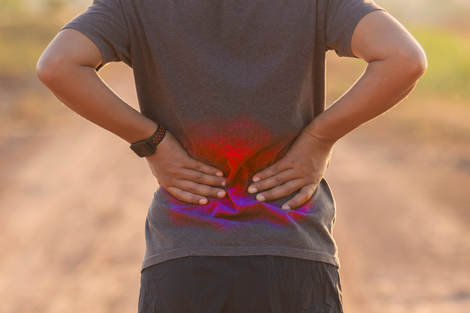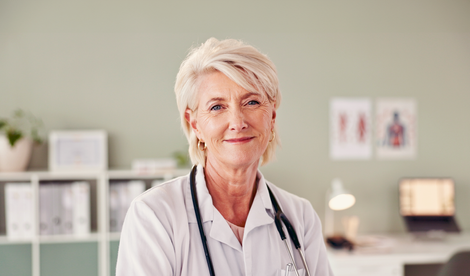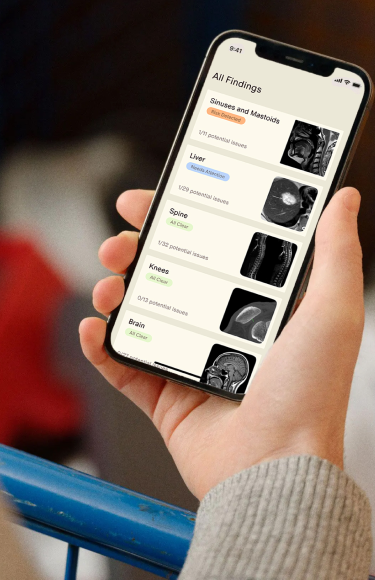Which health screenings are important for women? When should they be done, and what do they cost?
According to the Swiss Health Survey (SHS), over 5% more Swiss women than men visit a doctor for a check-up at least once a year. This doesn’t even include visits to a gynecologist.
However, many women still do not take full advantage of available preventive screenings. Many think only of cancer screenings, but regular health checks can prevent a variety of diseases or detect them in their early stages. Whether it’s diabetes, cardiovascular disease, kidney disease, or various cancers, those who have regular health check-ups significantly reduce their risks and improve their chances of recovery if illness does occur.
In this article, you’ll learn why health screenings are essential for women, which screenings you should undergo at different ages, and how these health checks typically proceed.
Why Are Health Screenings for Women Important?
Preventive screenings are check-ups you can undergo even without prior symptoms. They are designed to maintain your health, detect diseases early, and reduce the risk of severe illnesses. Some of the key reasons why you should undergo regular screenings include:
- Prevention of Cardiovascular Diseases: Regular health checks can help identify cardiovascular diseases, one of the leading causes of death, at an early stage. Conditions like atherosclerosis or early warning signs such as high cholesterol, high blood pressure, or diabetes can be detected and treated early. It’s important to note that cardiovascular diseases often develop slowly over time, and early signs should not be ignored.
- Gynecological Screenings: Gynecological exams and ultrasounds can help detect and treat conditions such as endometriosis, cysts, or infections early.
- Cancer Screenings: A PAP smear, mammography, and MRI can help detect and treat cancers such as cervical or breast cancer early.
- Osteoporosis Screening: Women are at higher risk of bone loss (osteoporosis), so bone density tests can help reduce the risk of fractures and recommend appropriate treatments.
- Family Planning and Reproductive Health: Screenings can help with contraception as well as fertility planning.
- Mental Health: Conditions such as depression and burnout require appropriate treatment. Early education and counseling are essential to get proper therapeutic support if needed. This proactive approach also applies to other mental health conditions and helps in managing situations that cause both physical and emotional distress.
Health screenings not only support physical health but also provide clarity about your overall health status, contributing to improved mental well-being. Even if a result is initially concerning, knowing about a condition is the first step towards treatment. Early detection through regular health checks significantly improves the chances of a successful and timely treatment.
Which Screenings Are Recommended for Women and When?
Health screenings aren’t just for women with increased health risks due to family history or genetics. Even young, healthy women should undergo regular check-ups. Below is an overview of what “regular” means and which screenings are recommended at various life stages.
Please note that these recommendations primarily apply to women without pre-existing conditions. If you belong to a high-risk group—due to genetic predisposition, previous health issues, or specific lifestyle factors—you may require additional or specialized screenings. It is therefore essential to work closely with your doctor to determine which health screenings are suitable for your situation. This personalized prevention approach helps proactively manage potential health risks and avoid unnecessary medical interventions, maximizing the effectiveness of preventive care.
Starting at Age 18
- Visit your dentist once or twice a year for check-ups.
Starting at Age 21
- Annual gynecological exams, including examinations of the external and internal genital organs.
- The Swiss Society for Gynecology and Obstetrics recommends a cytological screening (PAP smear) for cervical cancer every three years for women aged 21 to 29.
Starting at Age 30
- From ages 30 to 70, a PAP smear or HPV test for cervical cancer detection is recommended every three years.
- Annual breast and lymph node exams for breast cancer prevention.
- Monthly breast self-examinations.
Starting at Age 35
- General health check-ups every two years to detect:
- Cardiovascular issues (e.g., high blood pressure, atherosclerosis)
- Diabetes
- Liver and kidney diseases
- Skin exams every two years for early detection of skin cancer.
Starting at Age 50
- Mammograms every two years for breast cancer prevention (up to age 70).
- Stool tests for hidden blood every two years (up to age 69).
- Colonoscopy every 10 years with a gastroenterologist.
Starting at Age 65
- Bone density testing to detect osteoporosis.
During and After Pregnancy
- Regular ultrasounds and blood tests.
- Consultations with your gynecologist about additional measures, particularly nutrition.
Which Vaccinations Are Important for Women?
Beyond health screenings, don’t overlook your vaccinations. These include not only travel vaccines but also standard vaccinations that may need to be updated or administered if you haven’t received them yet. Important vaccinations for women include:
Between Ages 11 and 14
- HPV vaccine to protect against cervical cancer.
In Adulthood
- Combined vaccine for diphtheria, tetanus, and pertussis.
- Measles, mumps, rubella, polio, hepatitis B, and HPV vaccines, if not received earlier.
Starting at Age 65
- Pneumococcal vaccine to prevent pneumonia.
- Annual flu vaccine.
- Shingles vaccine.
How Do Health Screenings Typically Proceed?
Here’s what you can expect from major health screenings:
1) Gynecological Exam: A gynecologist examines both the external and internal genital organs and performs a PAP test to detect early stages of cervical cancer. Regular exams are recommended even after menopause.
2) Breast Cancer Screening: Starting at age 30, annual breast exams by a doctor are recommended, along with monthly self-examinations. Between ages 50 and 70, mammograms every two years are advised.
3) General Check-Up: Blood and urine samples are usually taken for lab tests. The check-up also includes a thorough discussion of your medical history, a heart and lung exam, and an assessment of your reflexes and sensory organs.
Will Health Screenings Be Covered by Insurance?
In Switzerland, the mandatory health insurance (OKP) covers most preventive screenings for women without requiring additional insurance. However, some screenings and tests outside the recommended intervals or travel-related services are not covered.
Conclusion
Health screenings for women in Switzerland are comprehensive, accessible, and usually free. Regular check-ups not only improve physical health but also provide peace of mind, contributing to better mental health.
Take advantage of these screenings to ensure long-term well-being and health.






